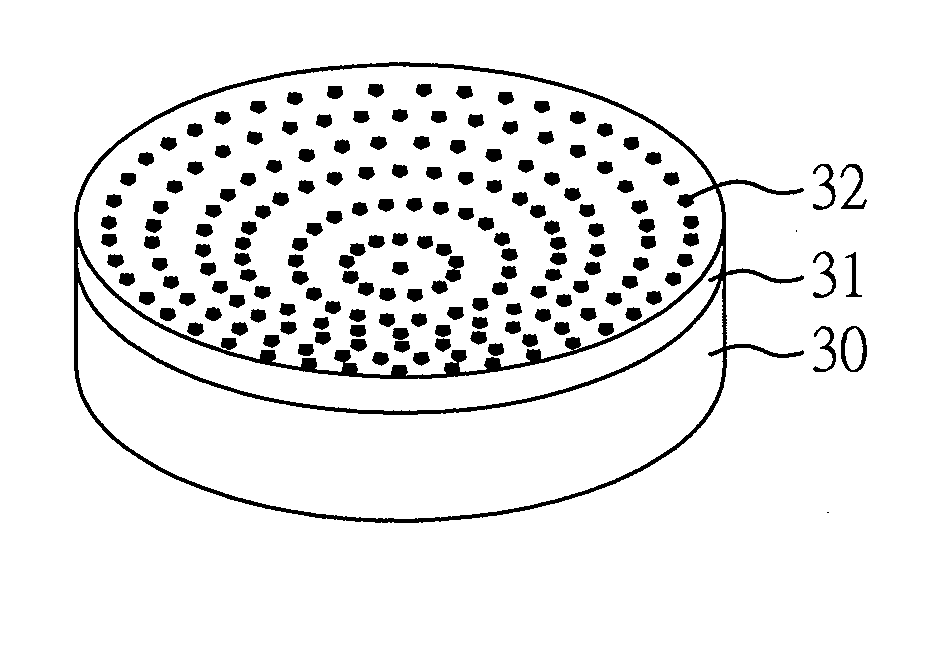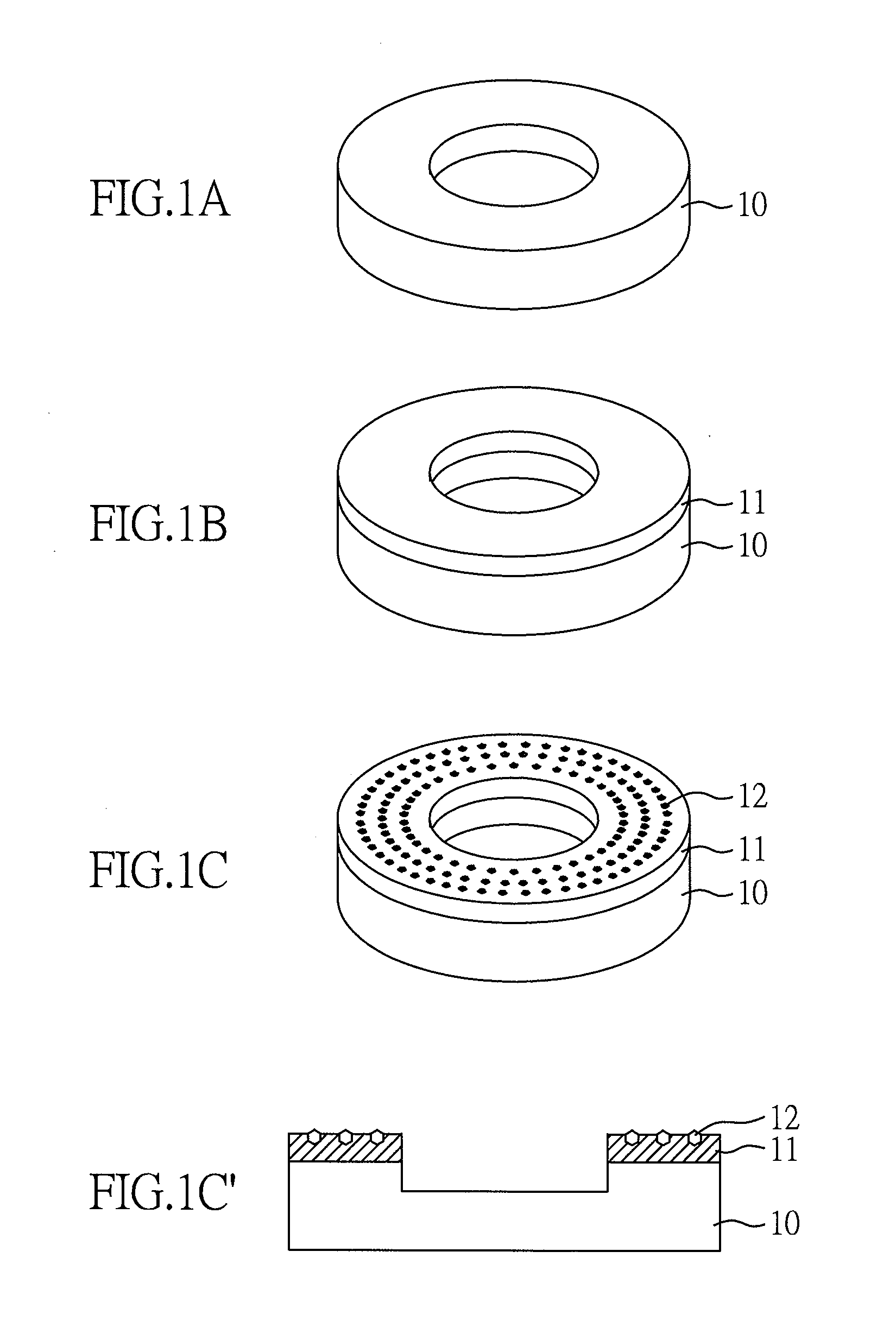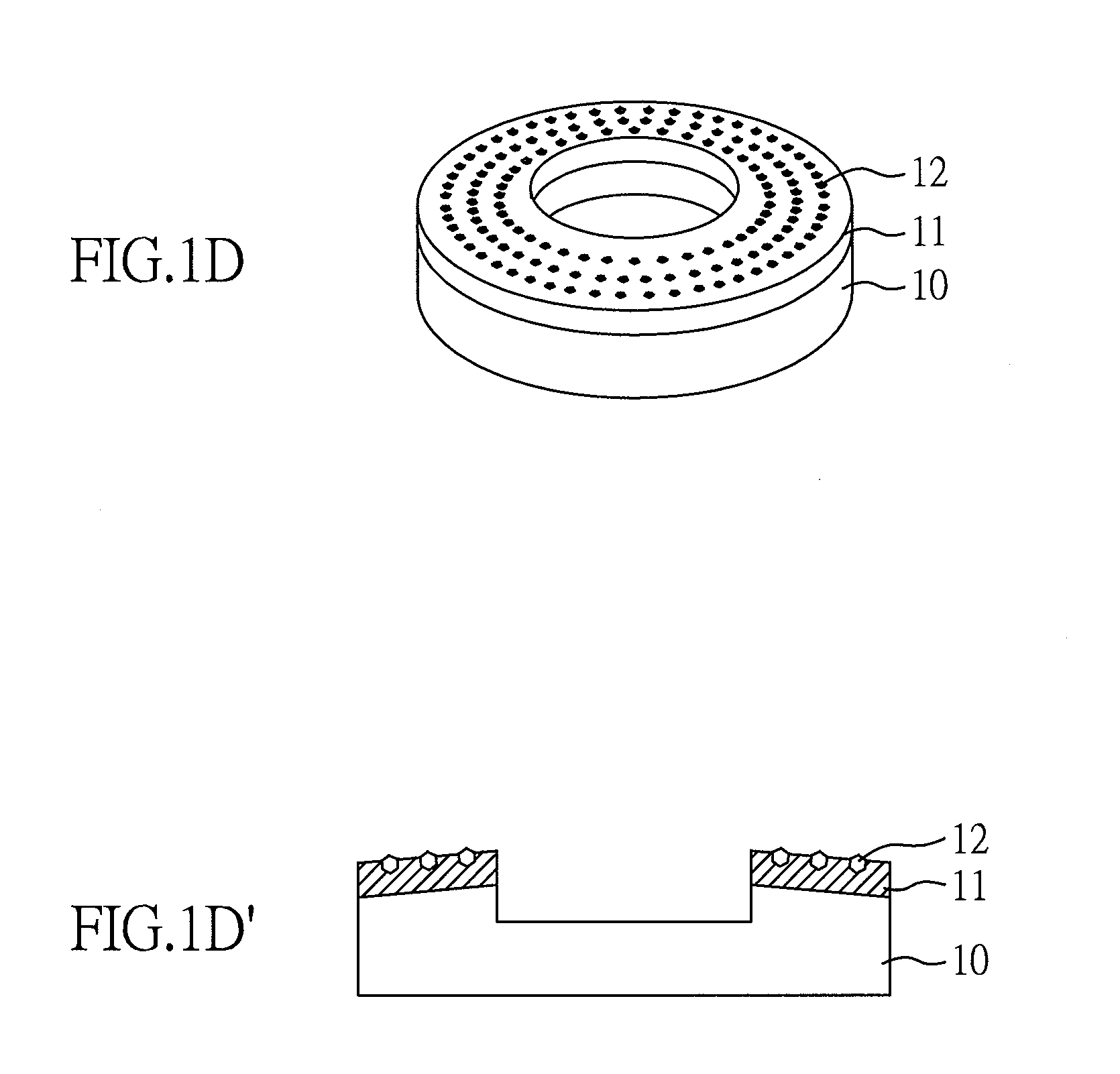Chemical mechanical polishing conditioner and manufacturing methods thereof
a technology of mechanical polishing conditioner and manufacturing method, which is applied in the direction of grinding device, abrasive surface conditioning device, other chemical processes, etc., can solve the problems of reducing the polishing efficiency and efficiency, destroying the flatness of the abrasive particles of the conditioner, adversely affecting etc., to achieve the effect of increasing the polishing efficiency and service life of the conditioner
- Summary
- Abstract
- Description
- Claims
- Application Information
AI Technical Summary
Benefits of technology
Problems solved by technology
Method used
Image
Examples
example 1
[0030]Please refer to FIGS. 2A to 2D′, a process flow for manufacturing a chemical mechanical polishing conditioner of example 1 of the present invention is shown. First, as shown in FIG. 2A, a non-planar substrate 20 made of stainless steel which has a central concave circular contour is provided; wherein a surface of the substrate 20 has an outer edge region 201 of the substrate and the center surface region 112 of the substrate, and the outer edge region 201 of the substrate has a height higher than the center surface region 202 of the substrate, so that the height of the surface of the substrate 20 is reduced from the outer edge region 201 of the substrate toward to the center surface region 202 of the substrate, and a tilted working surface of outside higher inside is formed between the outer edge region 201 and the center surface region 202, as well as the working surface is a linear contour. Furthermore, the binding layer is disposed on the substrate 20; wherein a surface of ...
example 2
[0032]Please refer to FIGS. 3A to 3D′, a process flow for manufacturing a chemical mechanical polishing conditioner of example 2 of the present invention is shown. The manufacturing process of Example 2 is substantially the same as the above Example 1, except that the structure of the substrate contour is different. First, as shown in FIG. 3A, a non-planar substrate 30 made of stainless steel which has a whole plane circular disk contour is provided; wherein a surface of the substrate 30 has an outer edge region 302 of the substrate and a center surface region 302 of the substrate, and the outer edge region 301 of the substrate has a height higher than the center surface region 302 of the substrate, so that a height of the surface of the substrate 30 is reduced from the outer region 301 of the substrate toward to the center surface region 302 of the substrate. Further, a tilted working surface of outer side higher than inside is formed between the outer edge region 301 of the substr...
PUM
| Property | Measurement | Unit |
|---|---|---|
| height | aaaaa | aaaaa |
| thickness | aaaaa | aaaaa |
| diameter | aaaaa | aaaaa |
Abstract
Description
Claims
Application Information
 Login to View More
Login to View More - R&D
- Intellectual Property
- Life Sciences
- Materials
- Tech Scout
- Unparalleled Data Quality
- Higher Quality Content
- 60% Fewer Hallucinations
Browse by: Latest US Patents, China's latest patents, Technical Efficacy Thesaurus, Application Domain, Technology Topic, Popular Technical Reports.
© 2025 PatSnap. All rights reserved.Legal|Privacy policy|Modern Slavery Act Transparency Statement|Sitemap|About US| Contact US: help@patsnap.com



